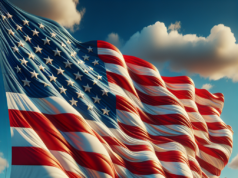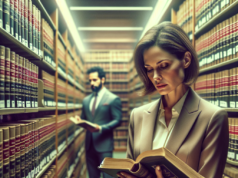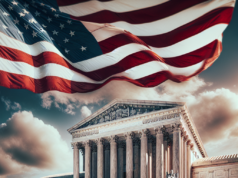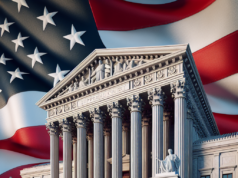
High-profile court cases have long captivated the public’s attention, serving as both spectacles and reflections of societal values and issues. From celebrity trials to corporate scandals, these cases often reveal deeper truths about justice, accountability, and the human condition. This article explores some of the most shocking high-profile court cases of our time, examining their historical context, societal impact, and the lessons they impart for the future of justice.
The Evolution of High-Profile Court Cases: A Historical Perspective
The phenomenon of high-profile court cases is not new; it has evolved over centuries, shaped by cultural, social, and technological changes. In the early 20th century, cases like the trial of Sacco and Vanzetti captured national attention, highlighting issues of immigration and social justice. The advent of mass media, particularly television, transformed the landscape of legal proceedings, bringing courtroom dramas into living rooms across America. The O.J. Simpson trial in the 1990s marked a significant turning point, as it showcased the intersection of race, celebrity, and media frenzy. Today, social media amplifies public discourse around legal cases, making them more accessible and contentious than ever before. This evolution underscores the growing importance of public perception in the judicial process, raising questions about the integrity of justice in the age of instant information.
Case Study: The O.J. Simpson Trial and Its Impact on American Society
The O.J. Simpson trial, which took place from 1994 to 1995, remains one of the most infamous legal battles in American history. Charged with the murders of his ex-wife Nicole Brown Simpson and her friend Ron Goldman, Simpson’s trial became a media spectacle, drawing in millions of viewers and igniting national debates about race, domestic violence, and the criminal justice system. The trial’s outcome—a not guilty verdict—was met with mixed reactions, reflecting deep-seated racial divides in America. For many, the case highlighted systemic issues within law enforcement and the judiciary, particularly concerning race relations. The trial’s legacy continues to influence discussions around celebrity culture, the role of media in shaping public opinion, and the complexities of justice in a racially stratified society.
The Enron Scandal: Corporate Fraud and the Quest for Accountability
The Enron scandal, which came to light in the early 2000s, epitomizes corporate malfeasance and the quest for accountability in the business world. Once hailed as a paragon of corporate success, Enron’s collapse revealed a web of deceit, accounting fraud, and unethical practices that led to significant financial losses for investors and employees alike. The subsequent trial of Enron executives, including CEO Jeffrey Skilling and chairman Kenneth Lay, underscored the need for stricter regulations and oversight in corporate governance. The scandal prompted the enactment of the Sarbanes-Oxley Act, aimed at enhancing corporate accountability and protecting investors. Enron’s legacy serves as a cautionary tale about the dangers of unchecked corporate power and the importance of ethical practices in business.
The Trial of Derek Chauvin: A Turning Point in Police Accountability
The trial of Derek Chauvin, the former Minneapolis police officer charged with the murder of George Floyd, marked a pivotal moment in the ongoing struggle for police accountability in the United States. The graphic video footage of Floyd’s death in May 2020 sparked nationwide protests and a renewed focus on systemic racism and police brutality. Chauvin’s trial, which concluded in April 2021 with a guilty verdict, was seen as a watershed moment for the Black Lives Matter movement and a broader call for justice reform. The case highlighted the urgent need for changes in policing practices and accountability measures, prompting discussions about the role of law enforcement in society. As communities continue to grapple with issues of race and justice, Chauvin’s trial stands as a significant milestone in the fight for equitable treatment under the law.
The Harvey Weinstein Case: #MeToo Movement and Legal Repercussions
The conviction of Harvey Weinstein in 2020 for sexual assault and rape marked a significant moment in the #MeToo movement, which has brought to light the pervasive issue of sexual harassment and abuse in various industries. Weinstein, a former Hollywood mogul, was accused by numerous women of sexual misconduct, leading to a broader reckoning within the entertainment industry and beyond. The trial not only resulted in a prison sentence for Weinstein but also sparked discussions about the culture of silence and complicity that often protects powerful figures. This case has had far-reaching implications, encouraging survivors to come forward and demanding accountability from institutions that have historically enabled such behavior. The legal repercussions faced by Weinstein serve as a reminder of the importance of addressing systemic issues of power and gender inequality in society.
Lessons Learned: The Future of Justice in High-Profile Court Cases
As society continues to navigate the complexities of high-profile court cases, several lessons emerge regarding the future of justice. First, the role of media and public opinion in shaping legal outcomes cannot be underestimated; transparency and accountability are essential to maintaining public trust in the judicial system. Second, the necessity for systemic reforms in both law enforcement and corporate governance is evident, as highlighted by the cases of Derek Chauvin and Enron. Finally, the ongoing dialogue surrounding issues of race, gender, and power dynamics must remain at the forefront of discussions about justice. As we look to the future, it is crucial to ensure that high-profile cases serve not only as spectacles but also as catalysts for meaningful change and progress in the pursuit of justice for all.
High-profile court cases will continue to capture the public’s imagination, serving as reflections of societal values and challenges. From the O.J. Simpson trial to the Harvey Weinstein case, these legal battles reveal the complexities of justice and accountability in a rapidly changing world. As we learn from these cases, it is imperative to advocate for a justice system that is fair, transparent, and responsive to the needs of all individuals, regardless of their status or background. The evolution of high-profile court cases offers both cautionary tales and hopeful narratives, reminding us of the ongoing quest for justice in our society.































